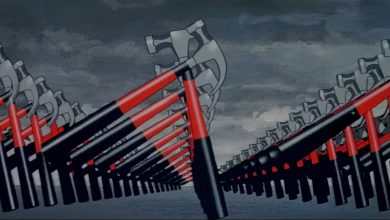The Other Side of Europe: Azerbaijan

‘The Other Side of Europe’ is an article series providing information about the EU European (geographically or culturally) neighbour countries located between Eastern Europe and the Caucasus. It follows a series in which we explored opportunities for future enlargement. In this fifth instalment, we will look at Azerbaijan.
Geography and Culture of Azerbaijan
Azerbaijan is a Caucasian country. It spans across 86,600 km2 and is bordered in the north by Russia, in the north-west by Georgia and in the West by Armenia and Turkey. We consider the disputed region of Nagorno-Karabakh as part of the country’s territory. It has an estimated population of around 10,000,000 inhabitants. One of the fundamental features of Azerbaijani culture is architecture. In the capital, Baku, one can find many ancient Persian-styled medieval architectural treasures like the Sirvan shah’s palace. Nevertheless, another symbol of the city are the three Flame Towers that have become the symbol of the country’s modernisation.

Azerbaijan is also among the first countries in the world to be involved in cinematography. The first movie industry of the country, in fact, dates back to 1898. Even Azerbaijani music forms a key part of the national culture. National musical instruments include 14 string instruments, 6 wind and 8 percussions. Azerbaijani music is closer to Persian style rather than Turkish.
The national cuisine is also diverse. One of the most famous dishes is plov: rice served with saffron and various herbs that can be mixed in more than 40 recipes. In addition, several varieties of kebabs and shashlik are common, including the special baliq (fish) kebab. Like in Turkey and other Middle Eastern countries, black tea is the national drink. Another symbol of the country is the pomegranate. Every year, a Pomegranate Festival is held in the city of Goychay in October. Special dishes are prepared for the Novruz; a family holiday derived from the traditional Iranian festival, Novruz Bayram.
Society and Religion
According to the last census, 91.60% of the people are ethnically Azerbaijanis. Lezgins, a population who descend from groups that used to inhabit the Southern Dagestan region in the Bronze Age and who are influenced by Central Asia, constitute 2% of the total population. This same group have a high percentage of DNA similar to a group of people located in Pakistan.

Armenians comprise of 1.35% of the population, and almost all of them live in the disputed Azerbaijani territory of Nagorno-Karabakh; disputed with Armenia. The official language, Azerbaijani, is spoken by more than 90% of the population, while in the Nagorno Karabakh, Russian and Armenian are spoken, which are the mother tongues of 3% of the population. 97% of the population are Muslims: 85% Shia and 15% Sunni.
Nevertheless, Azerbaijan is rarely featured in the “Shia Alliance” from a geopolitical point of view. According to Article 48 of its Constitution, Azerbaijan is a secular state. In a poll dating from 2008, only 21% of people affirmed that religion is an essential part of their life. Christians make up 3.1% of the population and are primarily Armenia, Russian or Georgian.
Economic Context
After gaining independence in 1991, Azerbaijan joined the International Monetary Fund, the World Bank, the European Bank for Reconstruction and Development, the Islamic Development Bank, and the Asian Development. Approximately two-thirds of the territory of Azerbaijan is rich in oil and methane, which are driving forces of the local economy. However, this driving force is not a contemporary trend.
Beginning in the 10th-century A.D., several historians and travellers like Ahmed Al-Belaruri, Abu-Ishag Istekhri, Abu-d-Gasan Ali Masudi and lastly, Marco Polo, mentioned the oil trade of Azerbaijan. In addition, the region of the Lesser Caucasus is abundant in gold, silver, iron, titanium and cobalt. A leading national company remains the SOCAR – the State Oil Company of the Azerbaijan Republic – which, in 1994, signed a 30-year contract with 13 other oil companies. The oil production led to a remarkable 26.4% growth of the GDP in 2005, which was the second-best GDP in the world at the time and by 34.6% the following year, registering the world’s highest GDP growth in 2006.

Economic reforms led the country to a general macroeconomic stabilisation. In 2008, Azerbaijan was mentioned among the 10 top reformers by the World Bank’s Doing Business Report. Since 2014, things have started to worsen: the collapse of the price of oil decreased state revenues. Last year, the currency was devalued twice and the inflation has grown considerably. Nevertheless, according to the same report published in 2019, the country improved its position in the “Ease of Doing Business Rank” reaching the 25th position at the global level.
State of Relations Between Azerbaijan and the EU
The relations between the European Union and Azerbaijan are governed by the European Neighborhood Policy and the Eastern Partnership. Azerbaijan is also part of the Council of Europe. In 1996, the EU and Azerbaijan signed the Partnership and Cooperation Agreement (PCA). Azerbaijan joined the Council of Europe in 2001, which represented the closer ties between the country and the EU.
Since 2004, Azerbaijan has been part of the European Neighbourhood Policy while it joined the Eastern Partnership in 2009. The European Union represents the country’s first commercial partner; representing 48.6% of the country’s trade. The export rate to the EU amounts to 60.7% – mainly oil and gas – of the total export, while the import rate amounts to 31.8% of the total trade – primarily machinery. In 2012, Baku hosted the Eurovision Song Contest and in 2014 the European Games.
Since 2013 there has been an agreement on the facilitation of visas, which was signed in Vilnius and officially became active on September 1 that year. It is valid for all countries except for the UK, Denmark and Ireland. The agreement states that visas are free for students, researchers, children and other special groups of citizens. Another Protocol, adopted in 2016, enabled Azerbaijan’s participation in EU Programmes through partnerships regarding infrastructure and oil extraction. Energy policy is among the strongest points of the cooperation between the EU and Azerbaijan.

The Pipeline Projects
The primary project is the Southern Gas Corridor Pipeline, which is an expansion of the South-Caucasus pipeline from Azerbaijan to Turkey, the Trans-Anatolian Pipeline and the Trans-Adriatic Pipeline, which, from Turkey, delivers gas to Italy through Greece and Albania. The Southern Gas Corridor involves 7 governments and 11 companies. Azerbaijan also supplies around 5% of the EU’s total demand for oil. However, in September 2015, the EU Parliament approved a resolution accusing Azerbaijan of violating human rights, highlighting that “peaceful protesters have been forbidden to protest in central Baku since 2006” and that journalists are subject “to constant intimidation and attacks”.
The Road Ahead
Azerbaijan is a strategic partner for the EU, above all for the energy supply, but also from a geopolitical point of view. Oil and gas supply are crucial for reducing Europe’s dependence on Russian gas.
Relations between Azerbaijan and Russia, despite trade increasing, have been tense for some time, mainly due to Russian support for Armenia in the conflict between Armenians and Azeris for the control of Nagorno Karabakh. What is most worrying about Azerbaijan is Russian aggression outside its national borders, as demonstrated by the recent attacks on Georgia and Ukraine. From this point of view, the West has an interest in Azerbaijan not falling under the control of Russia, which happened in Armenia, for example.
Moreover, the country is a strategic partner in counter-terrorism operations. Azerbaijan is the only government in the Caucasus, which is committed with the West to fight the Islamic State. The European Union has become increasingly critical of the alleged human rights violations of the government of Aliyev, who has been in power since 2003, even if there have not yet been significant breaks or positions taken.





